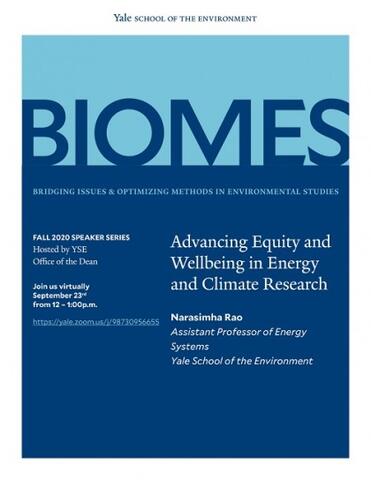With economic growth as a measure of social progress, the global challenges of eradicating poverty and mitigating climate change seem to be in conflict. An emerging view recognizes human wellbeing and its multiple dimensions as the cornerstone of sustainable development. How does this view alter how we view energy demand growth and climate goals? I discuss how recasting energy demand in terms of wellbeing opens up new avenues for identifying low-carbon development pathways, understanding resource inequality, and framing climate and energy justice. I illustrate research insights from different domains, including shelter and comfort, diets and cooking fuels. This research reveals that affluence, and not poverty eradication, poses a significant threat to achieving the Paris agreement goals. By building bridges between social science research, industrial ecology and integrated assessment of energy and climate change, this work paves the way for further interdisciplinary scholarship on wellbeing-driven, sustainable resource consumption.
